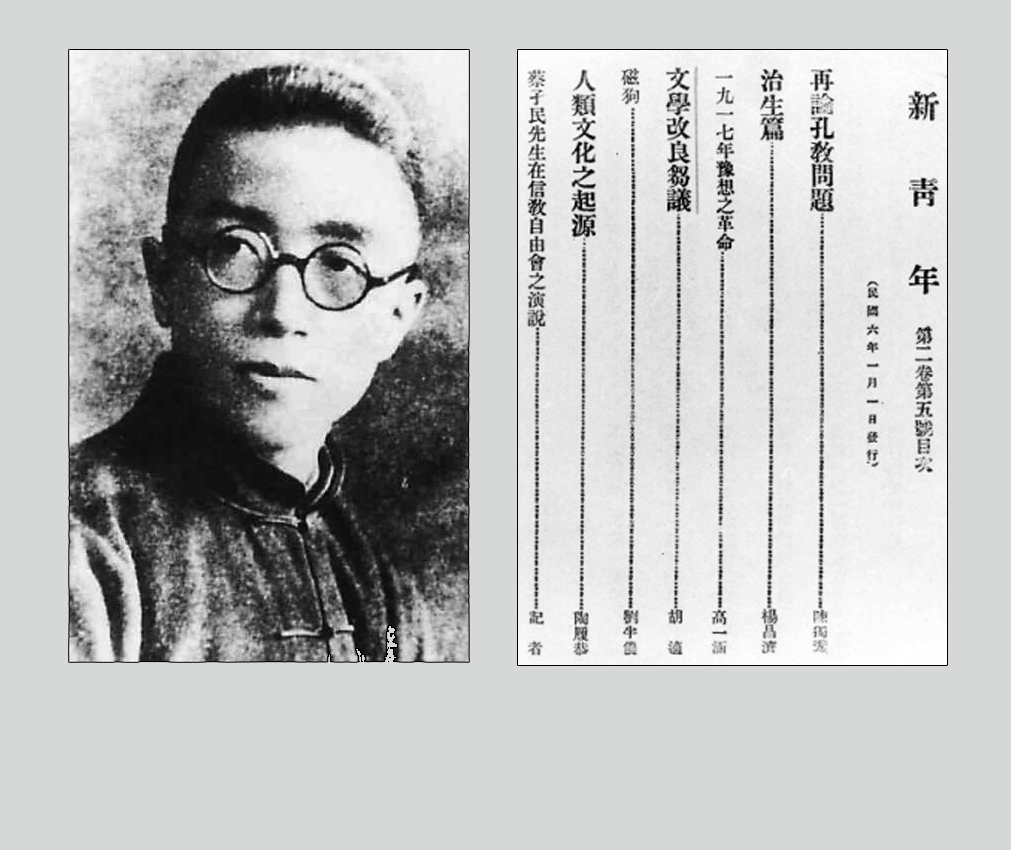Events held to discuss the New Culture Movement

Hu Shih’s article “Initial Discussion on the Reform of Literature” was published in the New Youth journal in 1917, signaling the beginning of a new round of the Vernacular Movement.
The New Culture Movement took place in China during the mid-1910s and 1920s, pushing for the creation of a new Chinese culture based on global and Western standards, especially in terms of democracy and science. A century after the movement, it continues to have great implications for today’s China and be a source of heated discussion in Chinese academic circles.
Jointly organized by Peking University, Fudan University, Zhejiang University and Anhui University, a series of academic events based on the New Culture Movement was held in Anhui Province from December 28 to 29, 2014. The first event focused on literature and society, reviewing and discussing the New Culture Movement from the perspective of literature.
In May 1918, Lu Xun, one of the leading figures of modern Chinese literature, produced the short story “Diary of a Madman” for the New Youth journal. The story was one of the first and most influential works written in vernacular Chinese, and became a cornerstone of the New Culture Movement.
Throughout the movement, vernacular literature underwent great development driven by anti-traditional and individual liberalization ideas. The movement also had profound influence on the spread of various modern concepts.
Wang Daming, a professor at the College of Liberal Arts at Anhui University, said that modern Chinese literature underwent three significant periods leading up to its formation. These comprised the period of integration of Chinese culture and Western culture in the second half of the 19th century; the period of transition at the turn of century; and the axial era around the May Fourth Movement.
The New Culture Movement had substantial implications for the development of Chinese literature in the 20th century, said Wang, adding that it is the reason why the May Fourth Literature Revolution is regarded as the axial stage in the 20th century.
“New literature in the May Fourth Movement abandoned the aesthetic pattern of classical literature, drawing a clear boundary between tradition and modern literature,” said Huang Jian, a professor at the School of Humanities at Zhejiang University. He claimed that the New Culture Movement brought significant influence on the emergence of new literature in the May Fourth Movement by reconstructing the meaning of “new literature.”
Almost all Chinese texts were written in classical Chinese before the New Culture Movement, which limited peoples’ freedom of expression and the spread of culture. In 1917, Hu Shih’s article “Initial Discussion on the Reform of Literature” was published in the New Youth journal. It signaled the beginning of a new round of the Vernacular Movement.
Chen Duxiu, Qian Xuantong, Liu Bannong, Lu Xun and Zhou Zuoren successively devoted themselves to the movement. They shunned classical Chinese and advocated vernacular Chinese in its place, making fruitful achievements in the movement between 1917 and 1920.
Some scholars claimed that the New Culture Movement, which advocated democracy and science while rejecting feudalism, received a groundswell of support due to the rise of vernacular Chinese. The widespread use of vernacular Chinese was a significant key achievement in the literary revolution.
Vernacular Chinese then became known as the national language. Tang Qixue, a professor at the Faculty of History at Anhui University, claimed that the popularization of vernacular Chinese was conducive to enhancing the educational level of the whole nation at that time. The Vernacular Movement was an inevitable result of social development, added Tang.
In Europe, Latin was the official written language before the awakening of national consciousness. However, after The Divine Comedy was written by Italian poet Dante Alighieri in the 14th century, English, German and French literature successively emerged.
“The evolution of European literary languages had significant implications for social liberalization, national independence and the formation of nations,” said Chang Qie, a professor at the College of Chinese Language and Literature at Wuhan University, adding that the transition in Europe also promoted revolution in Chinese society.
Apart from the influence of the West, traditional Chinese aesthetic spirits and vernacular literature also played an active role in promoting the literary revolution. “Essays written by the pioneers of new literature in the May Fourth Movement all expressed traditional aesthetic spirits,” said Wang.
